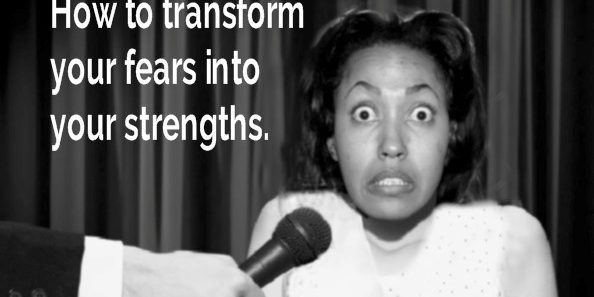He stepped up to the microphone to deliver his first talk in our sophomore speech class. His body turned to jelly. His eyes closed. He dropped to the floor. He shocked all of us.
According to the 2016 study by the National Institute of Mental Health, most Americans fear speaking in front of a crowd more than they fear dying. The study also showed that three quarters of us have a phobia about speaking in public.
So, if you have fears, often called insecurities, anxieties, or phobias, you have lots of company. If you have fears, you are not crazy or mentally disturbed. Some fear is normal. It’s actually healthy. In fact, if you don’t fear, you have something else seriously wrong going on.
The difference between a healthy and unhealthy fear is rather simple. Our fear is unhealthy when it becomes an irrational over-reaction to something that poses little or no real danger. Such fear, if not handled properly, can be mentally, emotionally, socially, and spiritually paralyzing.
How can you handle your fears? In this brief article I’m not trying to give you what you could find in many good books on overcoming fears. What I am offering you are four simple yet effective principles I have shared over years of counseling with people with harmful fears.
These principles work best if you conscientiously practice them every day. When you make them a habit, you’ll find they actually work.
1. Stop demonizing your fear. Fear is a God-given protection.
Fear is normal and healthy. It helps you handle important problems like beginning new challenges, taking tests, dealing with dangerous situations, or making important decisions.
2. Distinguish between your healthy and unhealthy fears.
A healthy fear becomes unhealthy if it doesn’t quickly go away. If it persists and interferes with your daily activities and relationships, call it what is it—unhealthy. Don’t excuse it.
3. Don’t focus on your fear. You’re feeding it.
Sounds too simple? Well, it works. In his classic book, Man’s Search for Meaning, Viktor Frankl, the Holocaust survivor and psychiatrist, says that focus is the key to healing fears. You become what you focus on.
4. Share your fear. Focus on love.
Like addictions, we never get our fears under control until we openly share them with a trusted friend and put them to work doing good. Turn your fear into your strength.
The Bible says “Love has no fear, because perfect love gets rid of all fear.” I John 4:18
You’ll be happy to know that my speech-class friend overcame his fear of crowds. Our gentle and experienced professor helped him learned how to use his fear to energize him rather than paralyze him.
Are you ready to turn your unhealthy fears into healthy strengths?
If you want to learn more about his subject, I’ve written a more extensive step-by-stop plan for helping people transform their problems into strengths in my book HEALTHY FAITH: A Strategic Lifesyle Plan to Transforms Your Head, Heart and Hands.

